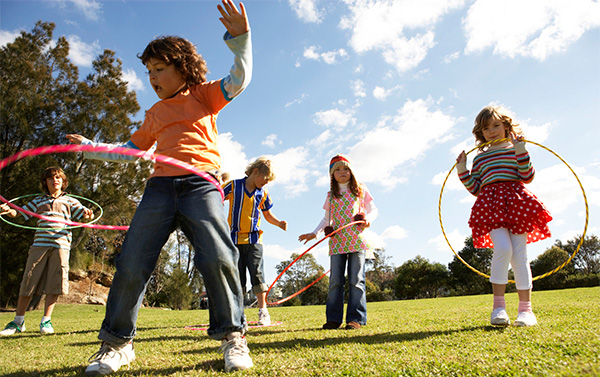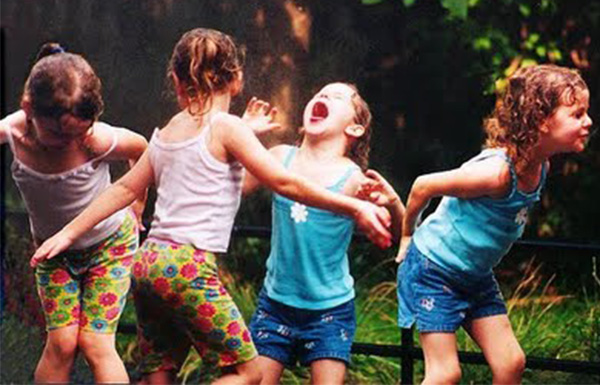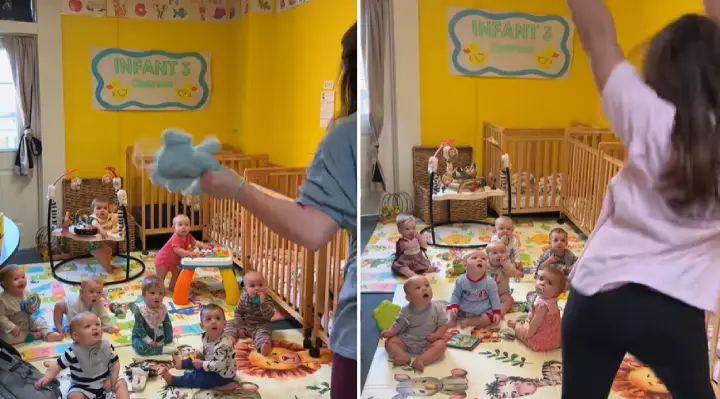Scientists Claim Time On The Playground Is More Beneficial Than Time In The Classroom
August 6, 2014
A new study shows that when it comes to a child's brain development, time in the classroom may be less important than time on the playground.

image credit unknown
"The experience of play changes the connections of the neurons at the front end of your brain," says Sergio Pellis, a researcher at the University of Lethbridge in Alberta, Canada. "And without play experience, those neurons aren't changed," he says.
"It is those changes in the prefrontal cortex during childhood that help wire up the brain's executive control center, which has a critical role in regulating emotions, making plans, and solving problems," Pellis says. "So play," he adds, "is what prepares a young brain for life, love and even schoolwork."
"But to produce this sort of brain development, children need to engage in plenty of so-called free play," Pellis says. "No coaches, no umpires, no rulebooks."
"Whether it's rough-and-tumble play or two kids deciding to build a sand castle together, the kids themselves have to negotiate, well, what are we going to do in this game? What are the rules we are going to follow," Pellis says. "The brain builds new circuits in the prefrontal cortex to help it navigate these complex social interactions."

image credit unknown
Much of what scientists know about this process comes from research on animal species that engage in social play.
"For one thing, play behavior is remarkably similar across species. Rats, monkeys, and children all abide by similar rules that require participants to take turns, play fair, and not inflict pain. Play also helps both people and animals become more adept socially," Pellis says.
"And in people, an added bonus is that the skills associated with play ultimately lead to better grades."
In one study, researchers found that the best predictor of academic performance in eighth grade was a child's social skills in third grade.
Another hint that play matters, Pellis says, is that "countries where they actually have more recess tend to have higher academic performance than countries where recess is less."
Via NPR
 His Last Day As A Teacher After 36 Years. They Turned It Into A Memory For Life
His Last Day As A Teacher After 36 Years. They Turned It Into A Memory For Life
 Teacher’s Simple Strategy Is Changing The Lives Of So-Called ‘Troublemaker’ Students
Teacher’s Simple Strategy Is Changing The Lives Of So-Called ‘Troublemaker’ Students
 Man Marks 11th Straight Christmas As The Last Unmarried Member Of His Family
Man Marks 11th Straight Christmas As The Last Unmarried Member Of His Family
 'I Laughed And Cried': Vet’s Hilarious Condolence Card Brings Laughter To Grieving Cat Owner
'I Laughed And Cried': Vet’s Hilarious Condolence Card Brings Laughter To Grieving Cat Owner
 Three Brothers Cleaning Out Mom’s Attic Found A Comic Worth $9 Million
Three Brothers Cleaning Out Mom’s Attic Found A Comic Worth $9 Million
 Teen Runs His Own Restaurant ALONE — One Of The Most Uplifting Stories You'll Read
Teen Runs His Own Restaurant ALONE — One Of The Most Uplifting Stories You'll Read
 A Stray Dog Wouldn't Let Go Of A Toy, So Shoppers Bought It For Him
A Stray Dog Wouldn't Let Go Of A Toy, So Shoppers Bought It For Him
 Watch The Moment This Dog Is Rescued From Dog Fighting
Watch The Moment This Dog Is Rescued From Dog Fighting
 Daycare Worker Goes Viral After Dancing For Babies — Their Reactions Are Priceless
Daycare Worker Goes Viral After Dancing For Babies — Their Reactions Are Priceless
 Nanny Gets Surprised With A New Car. Her Reaction Is Incredible
Nanny Gets Surprised With A New Car. Her Reaction Is Incredible
 Jamaican Mom Sees Snow For The First Time — And She Is LIVING
Jamaican Mom Sees Snow For The First Time — And She Is LIVING
